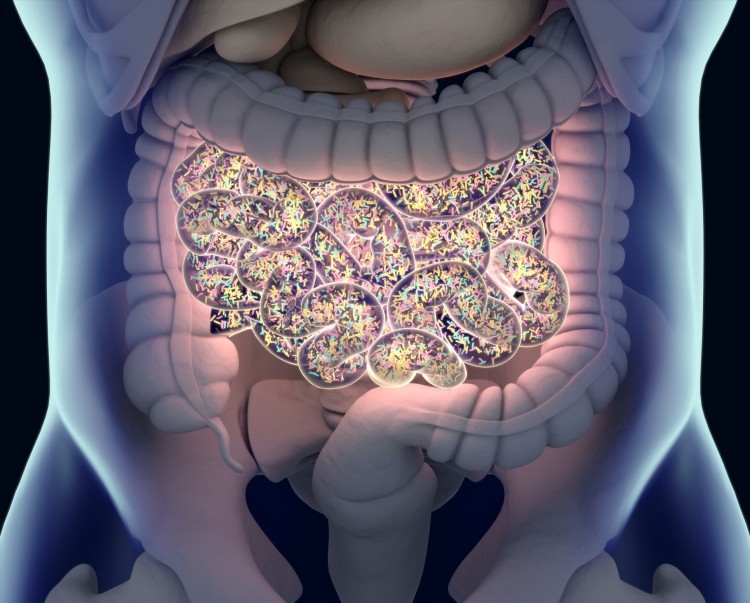Study observes gut dysbiosis in anaemic women

In addition, following treatment interventions using iron supplements, the Faecalibacterium populations were observed to be restored to normal levels in these IDA women with the shift from disease state.
“Although the results were derived from a limited number of subjects and additional research is needed, the results of this study are expected to be the basis for developing treatment and prevention strategies based on host–microbiome crosstalk in IDA,” conclude the Soonchunhyang University researchers.
Global deficiencies
Iron-deficiency anaemia (IDA) is the most prevalent nutritional deficiency worldwide, representing a widespread health epidemic. Occurrence is found to be greatest in women, particularly in those of childbearing age due to menstruation, pregnancy, and lactation. Whilst IDA occurs in both developing and developed nations, cases are amplified in women of middle- and low- income nations, with 47% reported to be anaemic during pregnancy in these areas.
It has been observed that IDA follows the reduced synthesis of haemoglobin and iron-containing enzymes, due to iron deficient diets, inadequate iron absorption, and increased iron absorption by the placenta or foetus. Due to the vital roles of iron in processes such as respiration, energy production and DNA replication, deficiencies can impact physical strength, impair immunity and neurocognition. Links have also been observed with impaired infant cognition and growth, highlighting the importance of maternal iron status.
Dysbiosis of the gut has been observed in IDA cases, with traditional iron therapy methods also found to reduce microbial diversity in the intestine. The researchers conducted the present study to observe the microbiomes of young women, to further investigate the role of the microbiome in IDA to improve treatment interventions.
Study
The researchers analysed the 16S gene in the faeces of 31 premenopausal women aged 20-50, of which 16 were healthy and 15 had IDA.
IDA patients received either an oral iron tablet of 80mg iron sulfate twice a day, or repeated 200mg of intravenous iron sucrose, over a period three to six months. Faecal sampling then followed blood tests confirming the improvement of anaemia in the patients.
Significant variations in beta diversity in terms of bacterial distribution was observed between healthy and IDA patients. Although there was no significant difference in terms of species diversity and richness between groups, dysbiosis was observed in IDA patients as seen in the pattern change of taxa composition.
It was observed that at the genus level, Faecalibacterium significantly decreased from 15.3% to 7.5%. Whilst other species showed relevant shifts in population numbers, the range of Faecalibacterium change of is very pervasive, suggesting that it may play a vital role in IDA.
However, the intestinal dysbiosis was restored following iron supplementation and subsequent recovery from the disease state.
Explained
The study observed significant dysbiosis of the gut in women suffering with IDA, suggesting an important role of the gut in this disease state.
The significant decreases in genus types of the Clostridium class represents a vital finding, with the researchers stressing that “It is the most critical butyrate-producing bacterium in the colon. It has been considered a biomarker of human health, favoring the inflammatory process once populations decline, which correlates with inflammatory bowel disease and colon cancer.”
Yet, the researchers highlight the importance of the direction of action in these findings.
“It is unknown whether IDA was induced before dysbiosis, which decreased Faecalibacterium, or if the causative link was reversed. We are also unsure whether iron supplementation led to Faecalibacterium recovery and IDA improvement or if the causal link was reversed. However, iron deficiency, the resulting IDA, the state of the gut microbiome associated with it, and the resulting inflammation are all closely connected in a complex relationship.
“Although functional biomarkers were predicted in this study, to truly understand the microbiome-related crosstalk in IDA, the analysis of the entire genome of bacteria in faeces must be performed,” they add, emphasising the need for further study utilising larger samples and validation using animal disease models.
Source: Nutrients
https://doi.org/10.3390/nu15030691
“The Effects of Iron Deficiency on the Gut Microbiota in Women of Childbearing Age”
by Hoonhee Seo, Seug Yun Yoon, Asad ul-Haq, Sujin Jo, Sukyung Kim, Md Abdur Rahim, Hyun-A Park, Fatemeh Ghorbanian, Min Jung Kim, Min-Young Lee, Kyoung Ha Kim, Namsu Lee, Jong-Ho Won, and Ho-Yeon Song












